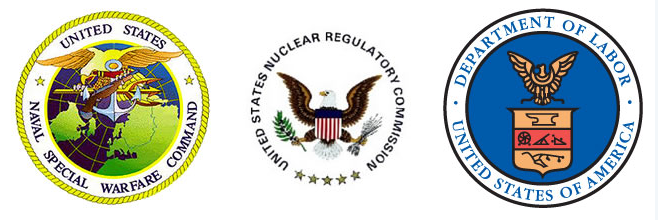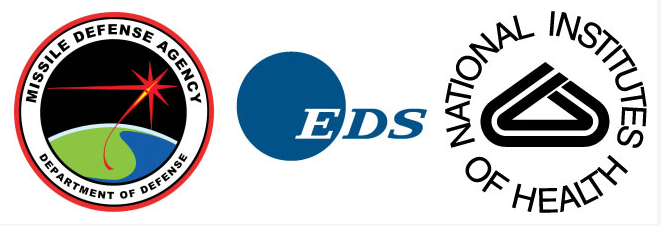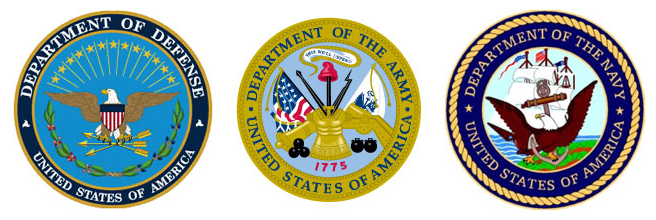February 09, 2012
PKI and SSL - the jaws of trust snap shut
As we all know, it's a right of passage in the security industry to study the SSL business of certificates, and discover that all's not well in the state of Denmark. But the business of CAs and PKI rolled on regardless, seemingly because no threat ever challenged it. Because there was no risk, the system successfully dealt with the threats it had set itself. Which is itself elegant proof that academic critiques and demonstrations and phishing and so forth are not real attacks and can be ignored entirely...
Until 2011.
Last year, we crossed the Rubicon for the SSL business -- and by extension certificates, secure browsing, CAs and the like -- with a series of real attacks against CAs. Examples include the DigiNotar affair, the Iranian affair (attacks on around 5 CAs), and also the lesser known attack a few months back where certificates may have been forged and may have been used in an APT and may have... a lot of things. Nobody's saying.
Either way, the scene is set. The pattern has emerged, the Rubicon is crossed, it gets worse from here on in. A clear and present danger, perhaps? In California, they'd be singing "let's partly like it's 2003," the year that SB1386 slid past our resistance and set the scene for an industry an industry debacle in 2005.
But for us long term observers, no party. There will now be a steady series of these shocks, and journalists will write of our brave new world - security but no security.
With one big difference. Unlike the SB1386 breach party, where we can rely on companies not going away (even as our data does), the security system of SSL and certificates is somewhat optional. Companies can and do expose their data in different ways. We can and do invent new systems to secure or mitigate the damage. So while SB1386 didn't threaten the industry so much as briskly kicked it around, this is different.
At an attacks level, we've crossed a line, but at a wider systems level, we stand on the line.
Which brings us to this week's news. A CA called Trustwave has just admitted to selling a sub-root for the explicit purpose of MITM'ing. Read about that elsewhere.
Now, we've known that MITMing for fun and profit was going on for a long time. Mozilla's community first learnt of it in the mid 2000s as it was finalising its policy on CAs (a ground-breaking work that I was happy to be involved with). At that time, accusations were circulating against unknown companies listing their roots for the explicit purpose of doing MITMs on unwitting victims. Which raised the hairs, eyebrows and heckles on not a few of us. These accusations have been repeated from time to time, but in each case the "insiders" begged off on the excuse: we cannot break NDA or reputation.
Each time then the industry players were likewise able to fob it off. Hard Evidence? none. Therefore, it doesn't exist, was they industry's response. We knew as individuals, yet as an industry we knew not.
We are all agreed it does exist and it doesn't. We all have jobs to preserve, and will practice cognitive dissonance to the very end.
Of course this situation couldn't last, because a secret of this magnitude never survives. In this case, the company that sold the MITM sub-root, Trustwave, has looked at 2011, and realised the profit from that one CA isn't worth the risk of the DigiNotar experience (bankruptcy). Their decision is to 'fess up now, take it on the chin, because later may be too late.
Which leads to a dilemma, and we the players have divided on each side, one after the other, of that dilemma:
 To drop the Trustwave root, or not?
To drop the Trustwave root, or not?
That is the question. First the case for the defence: On the one hand, we applaud the honesty of a CA coming forward and cleaning up house. It's pretty clear that we need our CAs to do this. Otherwise we're not going to get anywhere with this Trust thing. We need to encourage the CAs to work within the system.
Further, if we damage a CA, we damage customers. The cost to lost business is traumatic, and the list of US government agencies that depend on this CA has suddenly become impressive. Just like DigiNotar, it seems, which spread like a wave of mistrust through the government IT departments of the Netherlands. Also, we have to keep an eye on (say) a bigger more public facing CA going down in the aftermath - and the damage to all its customers. And the next, etc.
Is lost business more important than simple faith in those silly certificates? I think lost business is much more important - revenue, jobs, money flowing keeping all of the different parts of the economy going are our most important asset. Ask any politician in USA or Europe or China; this is their number one problem!
Finally, it is pretty clear and accepted that the business purpose to which the sub-Root was put was known and tolerated. Although it is uncomfortable to spy on ones employees, it is just business. Organisations own their data systems, have the responsibility to police them, and have advised their people that this is what they are going to do. SSL included, if necessary.
This view has it that Trustwave has done the right thing. Therefore, pass. And, the more positive proponents suggest an amnesty, after which period there is summary execution for the sins - root removal from the list distributed by the browsers. It's important to not cause disruption.
Now the case for the Prosecution! On the other hand, damn spot: the CA clearly broke their promise. Out!
Three ways, did they breach the trust: It is expressed in the Mozilla policy and presumably of others that certificates are only issued to people who own/control their domains. This is no light or optional thing -- we rely on the policy because CAs and Mozilla and other vendors and auditors and all routinely practice secrecy in this business.
We *must rely on the policy* because they deny us the right to rely on anything else!
Secondly, it is what the public believe in, it is the expectations of any purchaser or user of the product, written or not. It is a simple message, and brooks no complicated exceptions. Either your connection is secure to your online bank, and nobody else can see it *including your employer or IT department*. Or not.
Try explaining this exception to your grandmother, if the words do not work for you.
Finally, the raison d'Ítre: it is the purpose and even the entire goal of the certificate design to do exactly the opposite. The reason we have CAs like TrustWave is to stop the MITM. If they don't stop the MITM, then *we don't need the heavyweight certificate system*, we don't need CAs, and we don't need Mozilla's root list or that of any other vendor.
We can do security much more cost-effectively if we drop the 100% always-on absolutist MITM protection.
Given this breach of trust, what else can we trust in? Can we trust their promises that the purpose was maintained? That the cert never left the building? That secret traffic wasn't vectored in? That HSMs are worth something and audits ensure all is well in Denmark?
This rather being a problem with trust. Lie once, lose it.
There being two views presented, it has to be said that both views are valid. The players are lining up on either side of the line, but they probably aren't so well aware of where this is going.
Only one view is going to win out. Only one side wins this fight.
And in so-doing, in winning, the winner sews the seeds for own destruction.
Because if you religiously take your worldview, and look at the counter-argument to your preferred position, your thesis crumbles for the fallacies.
The jaws of trust just snapped shut on the players who played too long, too hard, too profitably.
Like the financial system. We are no longer worried about the bankruptcy of one or two banks or a few defaults by some fly specks on the map of European. We are now looking at a change that will ripple out and remove what vestiges of purpose and faith were left in PKI. We are now looking at all the other areas of the business that will be effected; ones that brought into the promise even though they knew they shouldn't have.
Like the financial system, a place of uncanny similarity, each new shock makes us wonder and question. Wasn't all this supposed to be solved? Where are the experts? Where is the trust?
We're about to find out the timeless meaning of Caveat Emptor.
Posted by iang at February 9, 2012 10:54 PM | TrackBackpossibly minor reference to the "last great dataprocessing IT party" ... which was news article referencing the IBM party at RSA 2000 held at San Jose coliseum ... old post about the party:
http://www.garlic.com/~lynn/2006r.html#15
I was lucky enough to attend a talk by Moxie Marlinspike on these issues a couple of weeks back. He's developed a tool called Convergence to deal with the issues. It's not perfect, but it's mostly better than what we have at the moment.
http://convergence.io
I'd love to hear your views on the approach?
Posted by: Chris Swan at February 10, 2012 11:10 AMfor slight topic drift ... comments just now
http://www.garlic.com/~lynn/2012b.html#70
on this
Four Sources of Trust, Crypto Not Scaling
http://www.phibetaiota.net/2012/02/john-robb-four-sources-of-trust-crypto-not-scaling/
Why The Global System is Killing Trust
http://globalguerrillas.typepad.com/globalguerrillas/2012/02/why-the-global-system-is-killing-trust.html
The thing that has always bugged me about the HTTPS everywhere movement is exactly this - what's the point of creating an illusion of privacy when it's reasonable to assume that your employer or a government agency acting through a compliant ISP is monitoring your activities in any case?
I *don't* trust my employer and most of my browsing at work is done through an SSH tunnel. I don't care about CAs or SSL issues at that level.
But fundamentally if I can't trust financial transactions, that's a different matter altogether.
OT - is it possible to fix the formatting in your RSS feed?
thanx
Steve
Posted by: Steve Wart at February 10, 2012 12:32 PMThe "lost business" to all of these dependent government departments would be minimal if they simply purchased new certificates from another CA to replace their Trustwave ones. Any business with any sense would be replacing their certificates with non-Trustwave ones right now, in preparation for the possibility of Trustwave's CA being pulled from browsers.
Therefore, I don't see how this can be used as a strong argument for keeping Trustwave's CA being trusted.
Posted by: Martin Smith at February 11, 2012 02:56 AM@Martin Smith
During the DigiNotar debacle, hundreds of applications had DigiNotar certificates hard-coded; because the certificates where (along with other things) used by the tax department all digital tax information submission was hampered. It also caused great problems for Justice, since they also used these certificates. Because there is an extensive procedure for special certificates and a limited number of approved authorities for these purposes in the Netherlands, it took months to replace them all.
"Trustwave"? More like "Trustwaive" amirite?
Unlike the other popular browser vendors, Mozilla claims to operate for the benefit of its users. I don't see how they can credibly avoid dropping this CA, although I expect them to delay the process for months in order to avoid punishing the mostly guilty.
Posted by: Jess at February 14, 2012 01:24 PM




